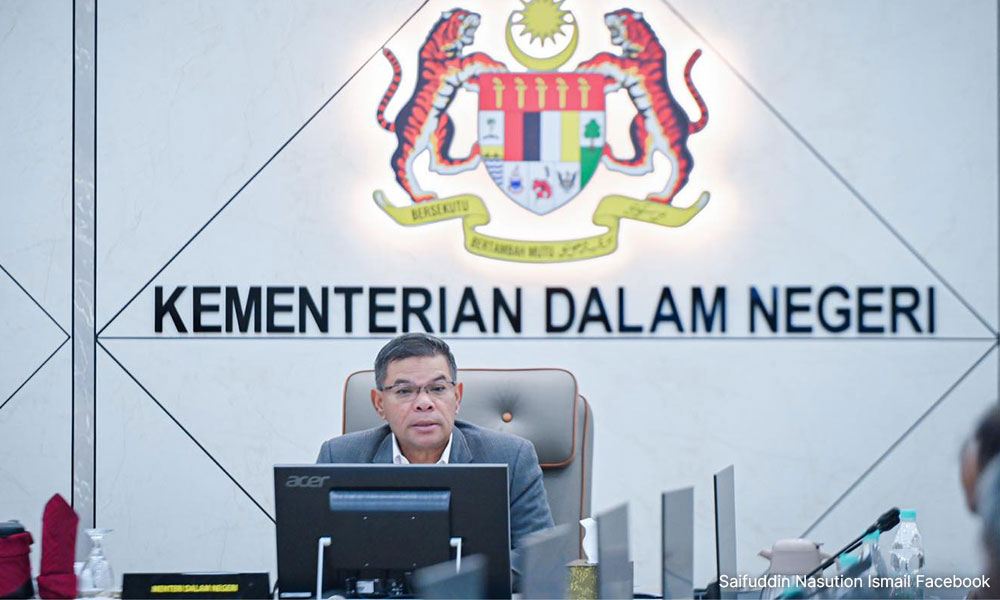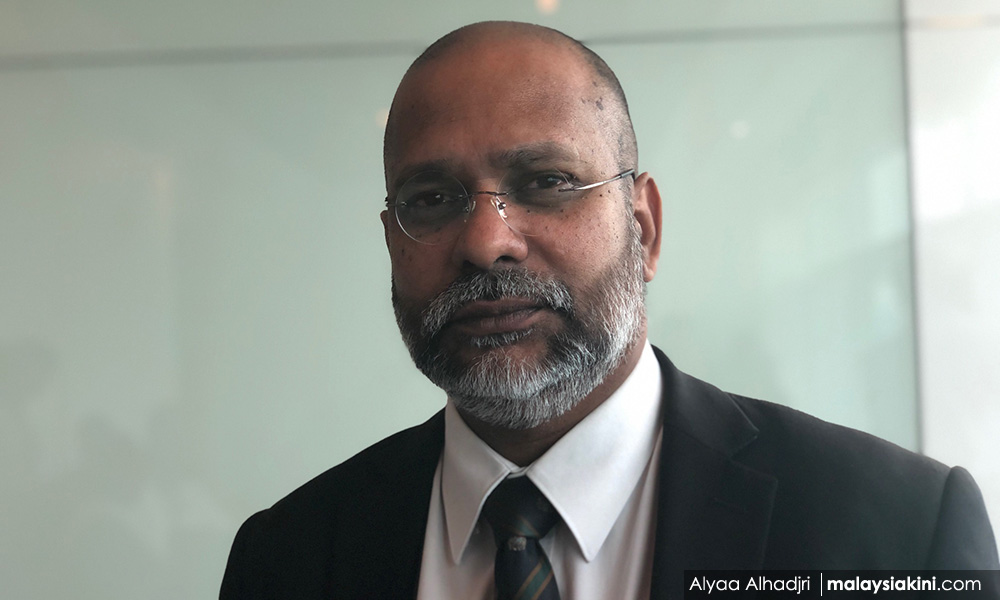The Malaysian Bar has expressed disappointment over the Independent Police Conduct Commission (IPCC) Act 2020 which will be enforced in June 2023, saying the act is “toothless” and “lacks authority” to uphold police accountability.
They were referring to the announcement made by Home Minister Saifuddin Nasution Ismail on Dec 13 and cited the phenomenon of deaths in police custody as a prime example of the IPCC’s shortcomings.
“The public has a right to expect that the police will act with utmost fairness when dealing with the community they serve.
“It is therefore only right that there should be an independent oversight body to preside over one of our country’s most important public services - the police force,” the Malaysian Bar president Karen Cheah said in a statement today.
The organisation has been vocal over the past years on the enforcement of the act, opting for the Independent Police Complaints and Misconduct Commission (IPCMC) to be established instead of the IPCC.

The IPCMC has similar functions to IPCC except it is conducted by an independent group that is not tied to the police force.
“It goes without saying that the police cannot police themselves.
“The IPCMC will provide the police with the dignity and respect it rightly deserves by addressing the misconduct committed by a few of its members.
“Which brings disrepute to the rest of the hardworking men and women in blue who are committed to serving our nation and its people,” the group’s president said.
The IPCMC Bill was initially tabled in 2018 but it was replaced with the IPCC in 2020 when Perikatan Nasional became government.
‘Too many flaws with its mechanism
The Malaysian Bar believed that the IPCC failed to be transparent and to provide a better-regulated police force.
They pointed out that the commissioners of the act are appointed by the Yang di-Pertuan Agong, where the chief executive officer of the commission is appointed by the home minister which further undermines any form of independence with its mechanism.
It was also stated that when the commission makes visits to police premises such as stations and lock-ups, they will need to provide early notice.
This renders the visits ineffective as the authorities will have time to make arrangements that are not reflective of their actual situations.
Furthermore, the IPCC commission has no objections to former police officers and government officials being appointed as commissioners, blurring the line between the higher-ups and the force.
“One of the main differences between the IPCMC and the IPCC is that under the IPCC, the commission cannot act against police officers who have committed wrongdoing, but can only recommend proposed action to the Police Force Commission or other relevant authorities.
“It is a toothless piece of legislation that does not effectively achieve the intended objective,” said Cheah.
The group claimed that good policing requires the public’s trust which can be done by establishing a system of civilian oversight. They said that external scrutiny is the official mark of any democratic police force - one that is responsible for the needs of the public.
“The Malaysian Bar, therefore, calls upon the government to substantially amend the IPCC Act to incorporate the necessary provisions as those found in the IPCMC Bill to bring about police accountability.
“The police wield great amounts of power, and it is only logical that a proportionate amount of responsibility and accountability must follow correspondingly,” Cheah concluded.
Edict: Malaysian Bar got it wrong
Lawyer and president of Edict (Eliminating Deaths and Abuse in Custody Together) M Visvanathan responded to the Malaysian Bar’s statement, claiming that the organisation has misunderstood the actual mechanisms of both the IPCC and IPCMC.

“The IPCC or IPCMC misconduct mechanism set up to inquire into an alleged misconduct is not a custodial death inquiry,” he said.
Visvanathan also stated that the issue overlooks the fact that there are also deaths in custody such as prisons, immigration centres, drug enforcement agencies and the MACC.
The controversial IPCC Bill was passed by a voice vote in the Dewan Rakyat on July 26. It will be effective starting June of next year, according to Saifuddin.
Former home minister Hamzah Zainudin said the bill is meant to improve the integrity of the police force and reduce misconduct.
Pakatan Harapan, the opposition coalition then, slammed the decision as the IPCC Bill does not fulfil the desired institutional reform and stressed that the act was a watered-down version of the IPCMC. - Mkini




No comments:
Post a Comment
Note: Only a member of this blog may post a comment.